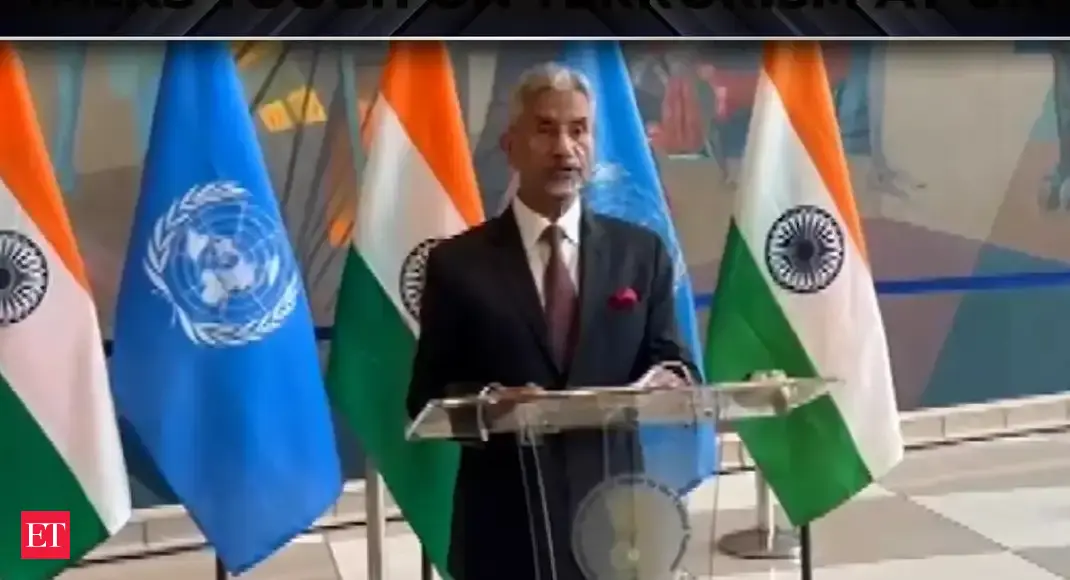

External Affairs Minister S Jaishankar has delivered a strong message on terrorism at the United Nations, emphasizing the urgent need for international cooperation to combat this global threat. Speaking at the inauguration of a digital exhibition titled "The Human Cost of Terrorism" at the UN headquarters, Jaishankar called on the international community to stand united against terrorism, stressing that there must be "no impunity to terrorists", "no treating them as proxies", and "no yielding to nuclear blackmail".
Jaishankar highlighted the grave threat that terrorism poses to humanity, emphasizing that it stands in direct opposition to the values the UN upholds, including human rights, established rules, and peaceful international relations. He asserted that when terrorism is supported by a state against a neighbor, fueled by extremism, and drives illegal activities, it is crucial to publicly denounce it.
In a veiled reference to Pakistan, Jaishankar underscored the importance of exposing and countering any state sponsorship of terrorism. He stated that terrorism anywhere is a threat to peace everywhere, urging the global community to let this understanding guide their collective thinking and response.
The External Affairs Minister also addressed the recent Pahalgam terror attack in Jammu and Kashmir, emphasizing the UN Security Council's strong condemnation of the act and its demand for accountability. He noted India's firm response to the attack through Operation Sindoor, which targeted terror infrastructure across the border in Pakistan and Pakistan-occupied Kashmir. According to reports, the operation resulted in the deaths of over 100 terrorists linked to groups such as Jaish-e-Mohammed, Lashkar-e-Taiba, and Hizbul Mujahideen.
Jaishankar stressed the need to remember and honor the victims of terrorism and to commit to acting, protecting, and upholding the values and human rights that terrorism seeks to destroy. He conveyed that the pain of the families of the victims serves as a stark reminder of the shared responsibility to combat terrorism in all its forms. The exhibition, featuring visual documentation of global terror attacks, including the 1993 and 2008 Mumbai attacks, as well as the recent Pahalgam strike, aims to give voice to those who can no longer speak and pay tribute to lives shattered by terrorism. The exhibition also names Pakistan-based outfits and individuals responsible for these attacks.
Jaishankar's remarks and the exhibition itself come at a significant time, coinciding with Pakistan's month-long Presidency of the Security Council. The initiative underscores India's commitment to combating terrorism and its determination to hold perpetrators and their sponsors accountable on the global stage.